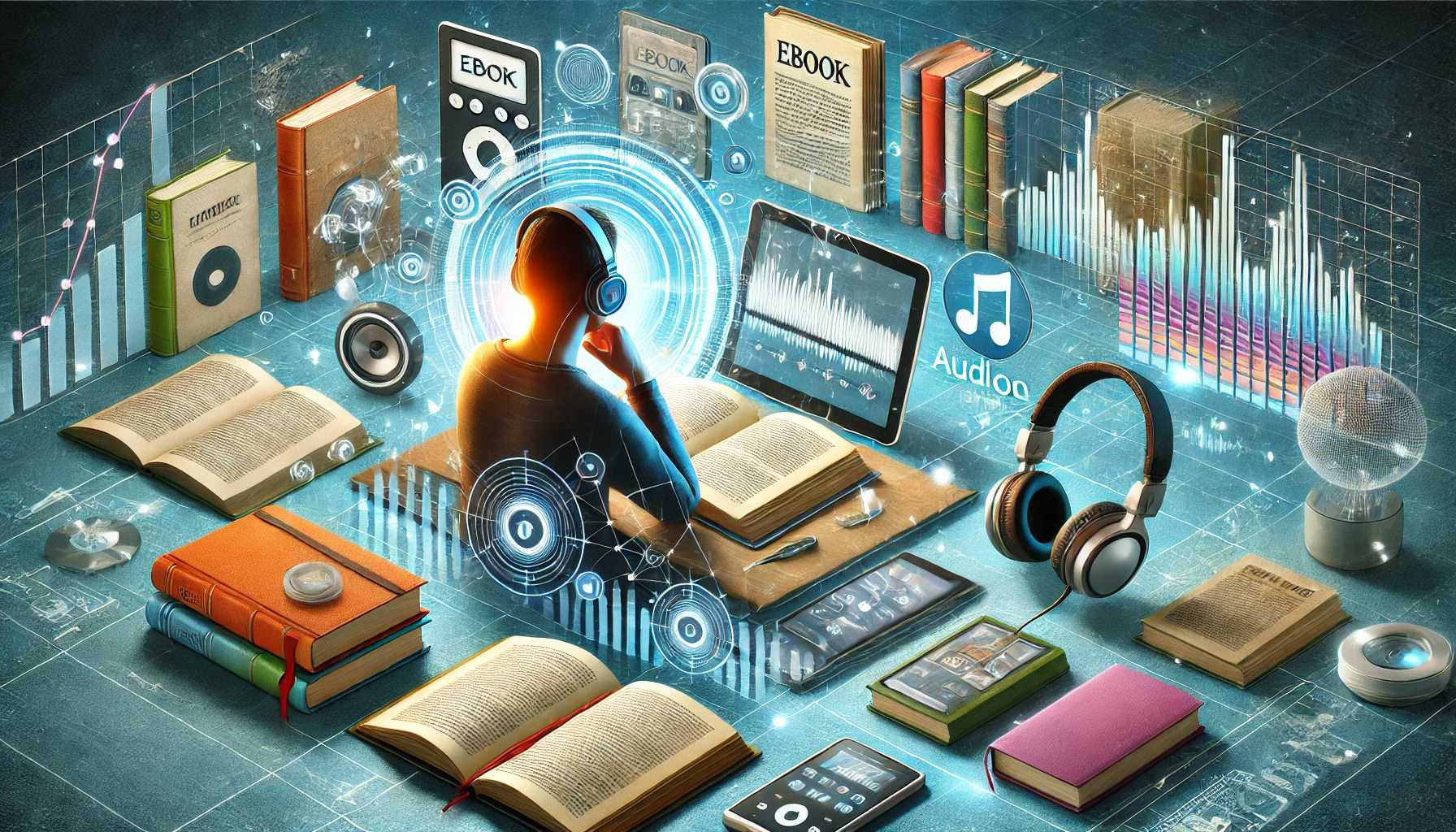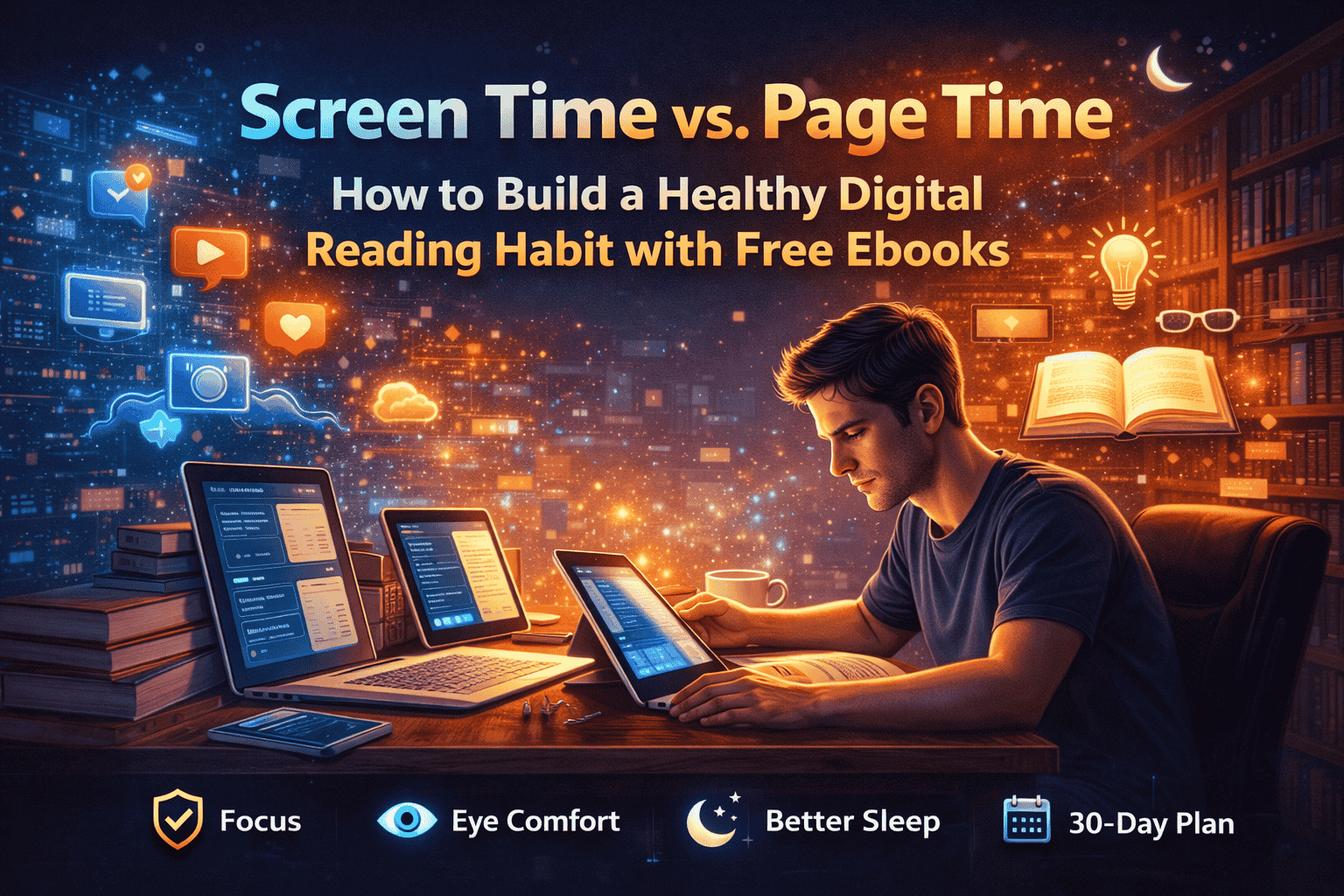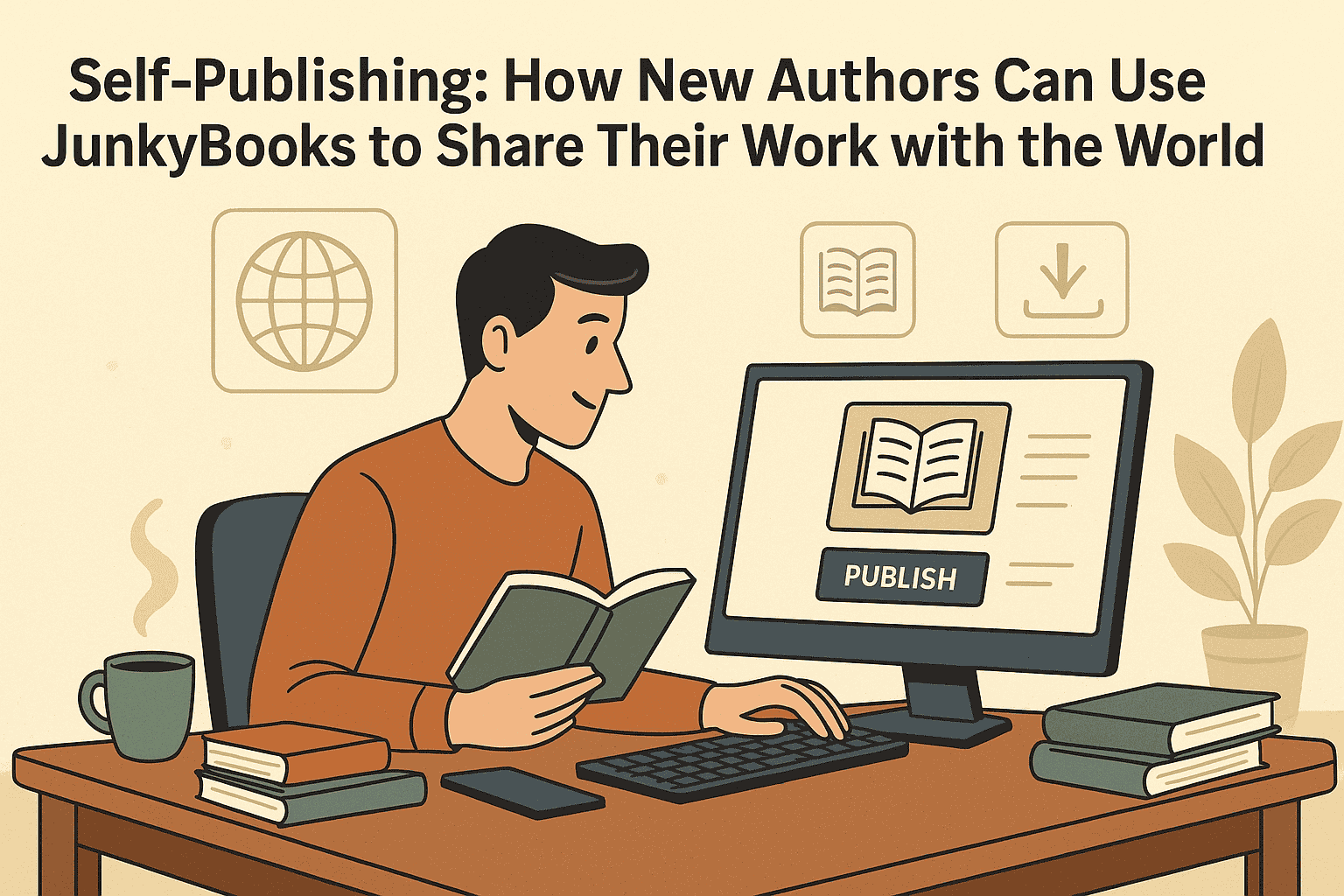Ebooks vs Audiobooks in 2024: The Digital Reading Evolution
In the ever-evolving landscape of digital reading, the debate between ebooks and audiobooks has become more relevant than ever in 2024. With advancements in technology and changing reading habits, both formats offer unique benefits and challenges. Whether you’re an avid reader, a multitasker, or someone exploring new ways to consume literature, understanding the differences and advantages of ebooks and audiobooks can help you make informed choices. Let’s dive into the world of digital reading and explore the nuances of ebooks and audiobooks in 2024.
The Rise of Ebooks
Ebooks have been around for a couple of decades, and their popularity continues to grow. With the convenience of carrying thousands of books in a single device, ebooks have revolutionized the way we read. In 2024, several factors contribute to the sustained growth of ebooks.
Accessibility and Convenience
One of the primary advantages of ebooks is their accessibility. Readers can access their favorite titles anytime, anywhere, without the need to carry physical books. Whether you’re commuting, traveling, or simply relaxing at home, having an entire library at your fingertips is a game-changer. Platforms like Kindle, Apple Books, and Google Play Books offer extensive catalogs, making it easy to find and purchase new titles instantly.
Enhanced Reading Experience
Ebooks have evolved beyond simple text on a screen. In 2024, enhanced features such as adjustable fonts, background colors, and text sizes cater to individual preferences, making reading more comfortable. Additionally, built-in dictionaries, translation tools, and note-taking functionalities enrich the reading experience, allowing readers to engage with the content more interactively.
Environmental Impact
As the world becomes more environmentally conscious, the shift towards digital reading aligns with sustainable practices. Ebooks reduce the demand for paper, printing, and transportation, contributing to a smaller carbon footprint. This eco-friendly aspect appeals to readers who prioritize sustainability and want to reduce their environmental impact.
The Allure of Audiobooks
Audiobooks have experienced a significant surge in popularity over the past few years. With advancements in technology and the rise of platforms like Audible, Scribd, and Libro.fm, audiobooks have become a mainstream way to consume literature. In 2024, audiobooks offer distinct advantages that cater to diverse lifestyles.
Multitasking and Flexibility
One of the most appealing aspects of audiobooks is their ability to fit into busy schedules. In our fast-paced world, finding time to sit down and read can be challenging. Audiobooks provide the flexibility to enjoy literature while performing other tasks such as commuting, exercising, or doing household chores. This multitasking capability allows readers to make the most of their time without sacrificing their love for books.
Immersive Experience
Audiobooks offer a unique auditory experience that can bring stories to life in ways that traditional reading cannot. Talented narrators, voice actors, and sometimes even full cast productions enhance the narrative, adding depth and emotion to the story. This immersive experience can make complex plots easier to follow and characters more relatable, providing a richer engagement with the content.
Accessibility for All
Audiobooks play a crucial role in making literature accessible to individuals with visual impairments or reading disabilities. By providing an alternative to traditional reading, audiobooks ensure that everyone can enjoy the magic of storytelling. Additionally, they can help language learners improve their listening skills and pronunciation, making them a valuable tool for education.
The Technological Edge: 2024 Innovations
In 2024, both ebooks and audiobooks benefit from technological advancements that enhance their appeal and usability.
Ebooks: Augmented Reality and Interactive Features
The integration of augmented reality (AR) in ebooks is a game-changer. AR technology allows readers to experience interactive elements, such as 3D models, animations, and multimedia content, directly within the ebook. This innovation is particularly impactful in educational ebooks, where complex concepts can be visualized and explored in a more engaging manner.
Audiobooks: AI Narration and Customization
Artificial intelligence (AI) has revolutionized audiobook production. In 2024, AI-generated voices are almost indistinguishable from human narrators, making it possible to produce high-quality audiobooks at a faster rate and lower cost. Moreover, AI allows for customization, enabling listeners to adjust the narration speed, pitch, and tone according to their preferences. This level of personalization enhances the overall listening experience.
The Cost Factor
When it comes to cost, both ebooks and audiobooks have their considerations.
Ebooks: Affordability and Subscription Models
Ebooks often come at a lower price point compared to physical books, making them an affordable option for readers. Additionally, subscription services like Kindle Unlimited and Scribd offer access to vast libraries for a fixed monthly fee, providing excellent value for voracious readers.
Audiobooks: Subscription and Credit Systems
Audiobook services typically operate on a subscription basis, offering a certain number of credits per month to purchase books. While individual audiobooks can be pricey, subscription models like Audible's membership plans provide a cost-effective way to enjoy multiple titles. Additionally, platforms like Libro.fm support local bookstores, allowing readers to contribute to their community while enjoying audiobooks.
The Reading Experience: Personal Preferences
Ultimately, the choice between ebooks and audiobooks boils down to personal preferences and individual reading habits.
Ebooks: Visual Engagement
For readers who enjoy the tactile experience of reading and prefer visual engagement, ebooks are a natural choice. The ability to highlight text, make annotations, and visually track progress resonates with those who find satisfaction in traditional reading practices. Ebooks also cater to readers who appreciate visual storytelling, such as graphic novels and illustrated books.
Audiobooks: Auditory Engagement
On the other hand, audiobooks cater to those who prefer auditory engagement. If you enjoy storytelling through spoken words, listening to audiobooks can be a deeply enriching experience. Audiobooks are ideal for auditory learners and those who find it easier to absorb information through listening rather than reading.
The Future of Digital Reading
Looking ahead, the future of digital reading is bright, with continued advancements in technology shaping the way we consume literature.
Hybrid Models
The distinction between ebooks and audiobooks may blur as hybrid models emerge. Imagine a seamless integration where you can switch between reading and listening to the same book without losing your place. This hybrid approach could cater to diverse preferences, allowing readers to choose the mode that best suits their current situation.
Enhanced Interactivity
As AR and AI technologies continue to evolve, both ebooks and audiobooks will offer even more interactive and personalized experiences. Enhanced interactivity in ebooks and AI-driven customization in audiobooks will push the boundaries of digital reading, making it more immersive and engaging than ever before.
Conclusion: Ebooks vs Audiobooks in 2024
In 2024, the choice between ebooks and audiobooks ultimately depends on individual preferences, lifestyles, and reading habits. Ebooks offer unparalleled accessibility, convenience, and visual engagement, making them a favorite for traditional readers and those who appreciate the tactile experience of reading. On the other hand, audiobooks provide flexibility, immersive storytelling, and accessibility for diverse audiences, catering to multitaskers and auditory learners.
Both formats have their unique advantages, and the best choice often comes down to personal preference and specific reading scenarios. With technological advancements driving innovation in both formats, the future of digital reading promises to be dynamic and exciting. Whether you’re an ebook enthusiast, an audiobook aficionado, or someone who enjoys both, the evolving landscape of digital reading in 2024 offers something for everyone.






